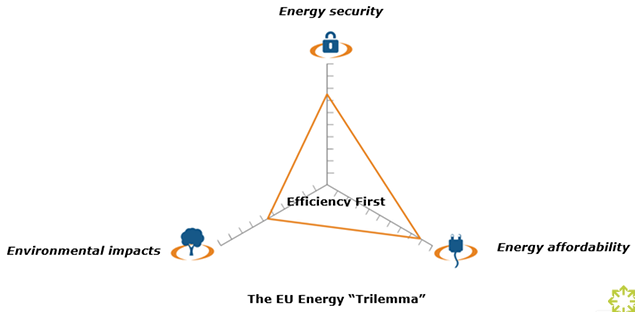Clean Energy for All Europeans Package - Do the Commission’s Impact Assessments Assign the Right Role to Energy Efficiency?

The report entitled "Clean Energy for All Europeans - Do the Commission's Impact Assessments Assign the Right Role to Energy Efficiency?" aims to support the on-going debate at the European Council and in the European Parliament on the efficiency files included in the Clean Energy for All Europeans package. It is based on the modelling results of the Commission’s scenarios included in the impact assessments related to the Energy Efficiency Directive and to the Energy Performance of Buildings Directive.
In line with the "Efficiency First Principle" the Commission's modelling projects energy savings to be the "First Fuel" of Europe, in 2030, in each of the efficiency scenarios. The more ambitious the energy savings target is, the more significant the contribution of energy efficiency is to address the Europe's energy trilemma. This makes the scenario aiming at 40% energy savings the most viable target to address each of the Europe's priority areas (energy security, climate change, air pollution and health impacts, energy affordability, competitiveness, jobs and growth).
The argument of prohibitive cost of the scenario aiming at 40% energy savings is irrelevant as the identified investment challenge is directly linked to the use of a 10% discount rate in the Commission's modelling and the inclusion of investments not related to energy efficiency in the estimate of investments needs and energy system costs.
Moving forward, the report suggests including in the next modelling exercise a sensitivity analysis of different discount rate levels and to consider the impact of the "Smart Finance for Smart Building" initiative in lowering the financial cost of the energy transition. The modelling results should also provide a detailed breakdown of investments expenditures and energy system costs to make the assessment of the cost-effectiveness of efficiency measures possible. This would allow for an evidence-based selection of the most appropriate 2030 energy efficiency target.





